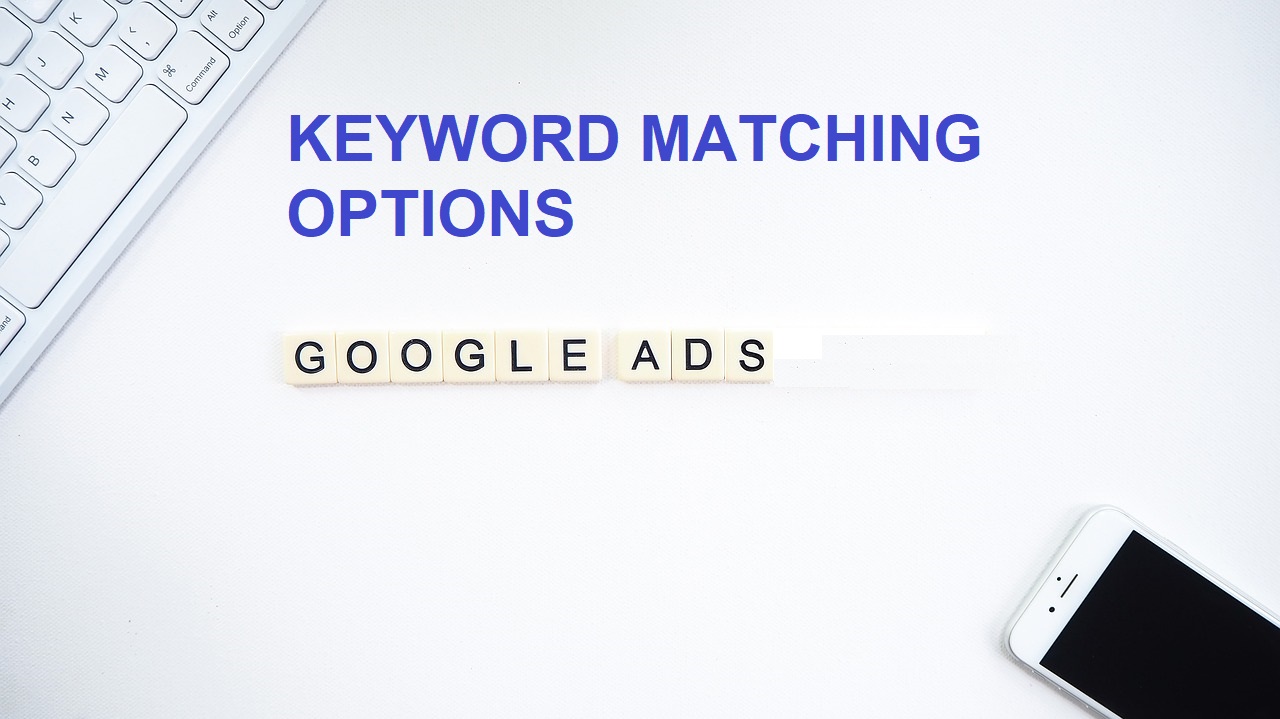As technology grows, every sector is impacted, including Digital Marketing. Google Ads is an SEM tool for showing ads about your products or services to show them to your potential clients. Here we are going to discuss the keyword matching options in Google Ads.
Google Ads gives you the feature to target your ads based on the following keyword matching options:
- Broad Match
- Phrase Match
- Exact Match
Let’s discuss each of them in detail:
BROAD MATCH
In Broad Match, your ad can trigger keywords that are closely associated with your search term. In addition, it can include searches that don’t contain the keyword terms but are associated with your keyword. For instance if I use the term airlines as a broad keyword, my Ad can trigger Air India, Jet Airways, Indigo.
It can also trigger on keywords Airlines price in XYZ location, get discount on flights.
Broad match helps you attract more visitors to your website, blog, or Youtube channel.
Broad match has significance mainly if you have a limited budget and you do not want to spend time building keyword lists and focus your spending on keywords that work.
This type of match is on by default, and if you mainly do not specify any other match type, all your keywords are the broad match.
The syntax for the broad match is to input the keyword.
Broad matches assist in delivering relevant matches and this type of match may also take into account the following:
- Search activities of a user or a client visiting your website, blog, or channel
- Landing page’s content
- Other keywords in an ad group to know keyword intent.
Broad match works well with Smart or Auto Bidding. Smart or an automated Bidding system makes a bid for each auction query and bids up or down depending on how well the search term or a user query performs.
You can learn more from Google’s official website
Learn more about how to grow your Smart Bidding campaigns with broad match
PHRASE MATCH
In a phrase, match ads may show on searches that include the meaning of your keyword. Thus, phrase match can imply the meaning of the keyword, and user searches can be a more specific form of the essence. Therefore, phrase match is more flexible than an exact match, but it is more targeted than the default broad match option.
Phrase match increases visibility, and one can reach more customers while still showing ads to customers who are most likely searching for a product or service and are your potential clients.
The syntax for phrase match is to put quotes around your keyword, such as “DELHI TO LUCKNOW FLIGHTS.”
EXACT MATCH
As the name suggests, the exact match shows on search queries that have the same meaning or almost the same intent as the keyword.
Out of the three keyword matching options we discussed, exact match gives you the most control over who sees your ad.
The exact match is denoted with brackets, such as [learn digital marketing]. Below is an example of how an exact match will work:
Suppose I used the keyword [learn digital marketing] it will trigger for all the search queries containing or meaning where a user has to learn digital marketing.
Additional Reference:
About keyword matching options – Google Ads Help.
https://support.google.com/google-ads/answer/7478529?hl=en-GB
Discover more from DigiPro Marketers
Subscribe to get the latest posts sent to your email.

